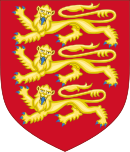
Back Referendum in Nordostengland 2004 German Koillis-Englannin kansanäänestys itsehallinnosta 2004 Finnish
| This article is part of a series within the Politics of the United Kingdom on the |
 |
|---|
| National and regional referendums held within the United Kingdom and its constituent countries | |||||||||||||||||||||||||||||||||||||||||||||
|---|---|---|---|---|---|---|---|---|---|---|---|---|---|---|---|---|---|---|---|---|---|---|---|---|---|---|---|---|---|---|---|---|---|---|---|---|---|---|---|---|---|---|---|---|---|
 | |||||||||||||||||||||||||||||||||||||||||||||
|
|||||||||||||||||||||||||||||||||||||||||||||
The North East England devolution referendum was an all postal ballot referendum that took place on 4 November 2004 throughout North East England on whether or not to establish an elected assembly for the region. Devolution referendums in the regions of Northern England were initially proposed under provisions of the Regional Assemblies (Preparations) Act 2003. Initially, three referendums were planned, but only one took place. The votes concerned the question of devolving limited political powers from the UK Parliament to elected regional assemblies in North East England, North West England and Yorkshire and the Humber respectively. Each were initially planned to be held on 4 November 2004, but on 22 July 2004 the planned referendums in North West England and in Yorkshire and the Humber were postponed, due to concerns raised about the use of postal ballots, but the referendum in North East England was allowed to continue, particularly as it was assumed that the region held the most support for the proposed devolution.
On 4 November 2004, voters in the North East rejected the proposal, in an all-postal ballot, by 77.9% to 22.1%, on a turnout of 48%. Every council area in the region had a majority for "no". The referendum was held in what was at the time arguably Labour's strongest region within the United Kingdom which included at the time the then Prime Minister Tony Blair's own constituency in Sedgefield. The defeat marked the end of the Labour Government's policy of devolution for England, and the other proposed referendums for the North West and for Yorkshire and the Humber were dropped indefinitely. This would also be the last major devolution referendum to be held in any part of the United Kingdom under the Labour Government of 1997–2010.
The campaign against the proposed Assembly was successfully led by local businessman John Elliott,[1] who argued that the institution would have no real powers and that it would be a "white elephant" and too centric to Newcastle upon Tyne.
It was the first major referendum to be held in any part of the United Kingdom which was conducted and overseen by the Electoral Commission after its establishment in 2000 under the Political Parties, Elections and Referendums Act 2000.
- ^ North East votes 'no' to assembly, "BBC News", November 2004.
